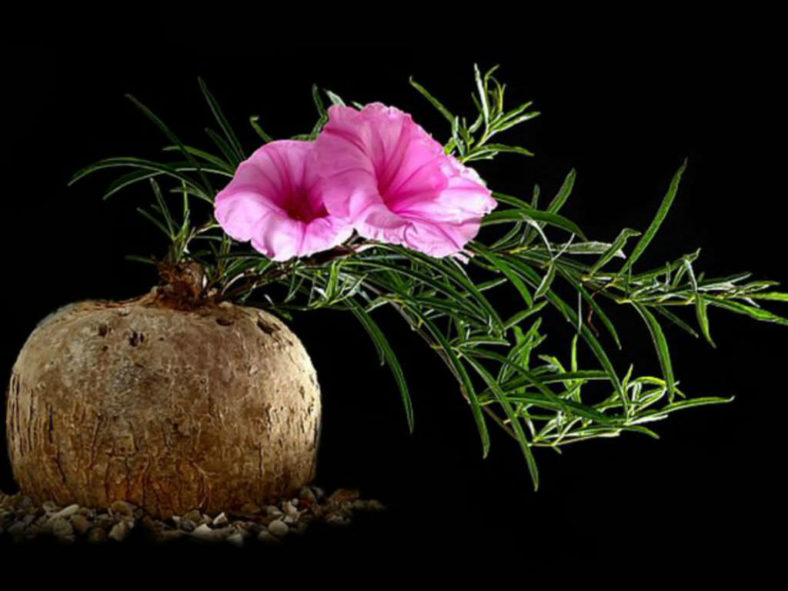Ipomoea is the largest genus in the flowering plant family Convolvulaceae, with over 500 species. It is a large and diverse group with common names, including Morning Glory, Sweet Potato, Bindweed, and Moonflower. The most widespread common name is Morning Glory. The generic name is derived from the Greek words "ips" or "ipos," meaning "worm" or "bindweed," and "homoios," meaning "resembling," and refers to their twining habit.
The genus occurs throughout the tropical and subtropical regions of the world and comprises annual and perennial herbaceous plants, lianas, shrubs, and small trees. Most of the species are twining climbing plants.
Most Ipomoeas have spectacular, colorful flowers. They are often grown as ornamentals, and many cultivars have been developed. People use Ipomoea for its medical and psychoactive compounds, mainly alkaloids. Some species are renowned for their properties in folk medicine and herbalism, while others are used as potent entheogens.

Growing Conditions and General Care
Ipomoeas need full sun and moderately fertile, well-drained soil in the garden. Provide shelter from the wind. Prune climbing species in spring. Under glass, provide full sunlight with protection from the hottest sun. Water the plants freely and fertilize them monthly during the growing season. Water sparingly in winter. Climbers and trailing species need support.
Propagation
Chip seeds with a knife, scrape with sandpaper, or soak in water for 24 hours before sowing at 64 °F (18 °C) in spring. Root softwood cuttings of perennials or shrubs in spring or summer, or take semi-ripe cuttings in summer.
Pests and Problems
White blister, rust, fungal leaf spots, stem rot, thread blight, charcoal rot, and wilt can occur.
Links
- Back to genus Ipomoea
- Succupedia: Browse succulents by Scientific Name, Common Name, Genus, Family, USDA Hardiness Zone, Origin, or cacti by Genus